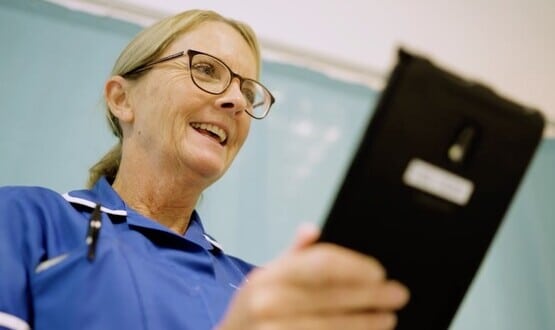St George’s virtualises desktops
- 3 October 2014

St George’s Healthcare NHS Trust has virtualised 2500 desktops as part of a move to introduce more mobile access across the trust.
Imprivata’s OneSign gives trust staff single sign-on access to its picture archiving and communications system and a range of other clinical applications.
Justin Beardsmore, the trust’s infrastructure manager, told EHI that St George’s decided to move to virtual desktops several years ago as part of a review of its IT strategy.
“We were looking to change the way we provide our desktops because we sensed that we needed to do something about it,” he said.
“It was inconsistent, so we wanted to look at central mobility and central management so we could manage it better.”
Beardsmore said the trust’s focus was on improving mobile access in inpatients and outpatients areas as well as remote access, while also developing a solution that was future-proofed.
“We were looking for a step-change. Our chief information officer wanted something that wasn’t just good for the next 12 months, but that would stand the test of time and allow us to share data anywhere, any time.”
As the trust developed a proof of concept to virtualise its 3500 PCs and approximately 500 laptops across the trust, he said it became clear that single sign-on was needed to “hold it all together” as a gateway into the virtual environment.
The trust migrated its first 800 virtual desktops in November 2012 with single sign-on access via an NHS smartcard, followed by small incremental upgrades to reach 1500 virtual desktops, before adding another thousand in April 2014 to reach a total of 2500 virtual desktops.
Beardsmore said the trust has also deployed just under 2000 thin client terminals to replace approximately 1100 PCs in clinical areas.
He said the virtual desktop infrastructure is “very device-independent”, and can be accessed on phones or tablets.
Some departments are already using tablets to “test the waters” as the trust considers whether a wider roll-out is needed.
Beardsmore said one issue is working to deliver the applications natively to the tablets or mobile devices.
“The way we’re doing it now is useful to a point, but not the same experience it. It’s nice, a stepping stone, but we want to deliver the applications natively.”
Allowing clinicians and other staff to adjust to the changes has been the most important part of the project, he said.
“The advice I would give everybody is that it’s not necessarily a traditional IT infrastructure project. The technology is actually the easy part: what’s difficult is the clinical change, and having penetrative change within the organisation.”
Beardsmore said the trust is currently assessing its future plans for the programme, with a focus on how mobile access should be delivered.




